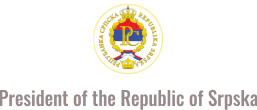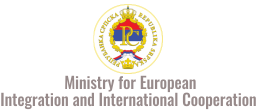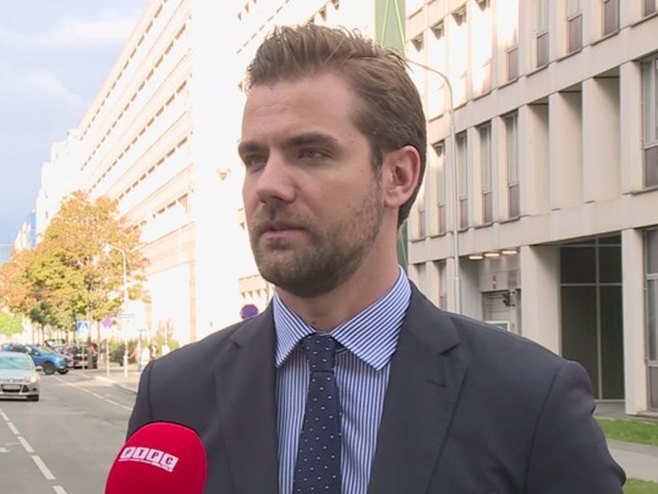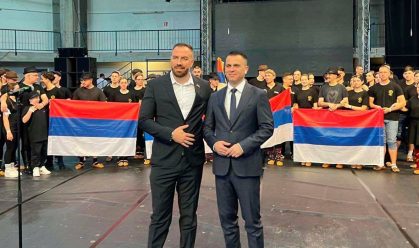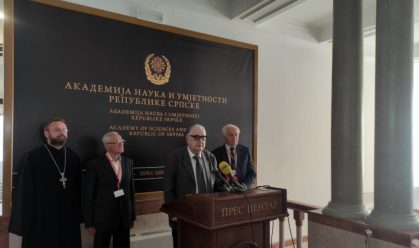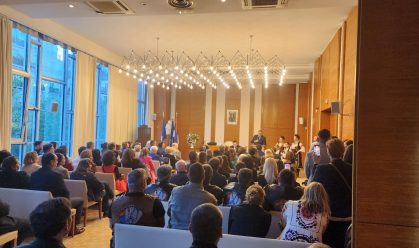Like other European countries, Austria is facing certain challenges and increased unemployment despite the measures of support of the Austrian government, says Mladen Filipović, Head of the Republic of Srpska Representative Office in Austria, in an interview.
Filipović added that most challenges lay in the tourism and hospitality sector, which naturally affected also the employment of citizens from the Republic of Srpska.
“First of all, here I mean seasonal workers who have been deprived of the opportunity for employment due to the still ongoing lockdown. It is difficult to speak only about the jobs of citizens from the Republic of Srpska, because in fact the entire Austrian labor market is affected by the consequences of the pandemic. We hope to see the measures relax and economic activity resume in the coming period, thus enabling new employment,” says Filipović.
Has the situation in Vienna returned to normal after the terrorist attack that took place in November last year?
FILIPOVIĆ: Social life in Vienna returned to normal relatively fast after the terrorist attack, naturally if we exclude the current situation regarding the coronavirus pandemic and the measures in force. Austrian institutions reacted efficiently and timely, not allowing the panic to spread further in the public, demonstrating seriousness and determination in facing this challenge. I believe that the conducted investigations and Austrian institutions will prevent things like this from happening again. Vienna is a city of tolerance, and I am certain it will remain so.
What is your message for BiH citizens who want to live and work in Vienna, is it a safe city today?
FILIPOVIĆ: Vienna is one of the safest cities in Europe, as shown by regular surveys measuring the quality of life in metropolises around the world. As I mentioned, Vienna is an open and tolerant city, willing to accept citizens from different countries. Research shows that our community integrates successfully into the Austrian society, with not only workers coming to Vienna, but also many students, young people, experts from various fields.
Has the situation caused by the coronavirus endangered the jobs of the citizens of Srpska working in Vienna?
FILIPOVIĆ: Unfortunately, the coronavirus pandemic has had a significant impact on stagnation of economic activities around the world. Like other European countries, Austria is facing certain challenges and increased unemployment despite the measures of support of the Austrian government. Most challenges lie in the tourism and hospitality sector, which naturally affects also the employment of citizens from the Republic of Srpska where I, first of all, mean seasonal workers who have been deprived of the opportunity for employment due to the still ongoing lockdown. It is difficult to speak only about the jobs of citizens from the Republic of Srpska, because in fact the entire Austrian labor market is affected by the consequences of the pandemic. We hope to see the measures relax and economic activity resume in the coming period, thus enabling new employment.
Has our Representative Office been busier than usual from the beginning of the pandemic until present and what has been the greatest focus of your work?
FILIPOVIĆ: The pandemic also affected the dynamics of our work. We had to modify and adapt some of the planned projects to the new situation. Our main task is to develop and improve the cooperation of economic entities of the Republic of Srpska and the Republic of Austria, to promote our economic potentials and to encourage investments in the economy of Srpska.
Therefore, also under the conditions of the pandemic, the Republic of Srpska Representative Office in Austria has been in constant communication with representatives of the economy and institutions in Austria and the Republic of Srpska. Unfortunately, many activities were reduced, and many events had to be canceled. We tried to adapt like everyone else, so we held a lot of activities and meetings through internet platforms.
During the past years, by means of the activities of the Representative Office numerous projects were organized that enabled contact between the markets of Srpska and Austria. For example, during 2019 and 2020, we presented the Show Room in Linz, a project supported by the Government of the Republic of Srpska, due to which more than 30 companies from Srpska presented their products and services in the Austrian market. Analyses show that it is precisely owing to this initiative that a significant number of them have established business connections and contacts with partners in Austria.
Thanks to the engagement and support of the Republic of Srpska Representative Office in Austria, Pewag Group has realized significant investments in the Republic of Srpska since 2019, amounting to more than eight million BAM, in expanding production capacity and export activities, thus creating more than 150 new jobs. At the initiative of Pewag Group in early 2020, additional two million BAM was invested in the construction of a new plant with 20 new workers, and a dedicated development and design firm was opened exclusively for the needs of the Group.
групације почетком 2020. године инвестирано је додатних два милиона КМ у изградњу новог погона са нових 20 радника те је отворена посебна фирма за развој и пројектовање искључиво за потребе групације.
What makes us especially proud is that the management and owner of Pewag Group, with the help of the Representative Office, recognized the Republic of Srpska as a partner. Additional investment cycles in the amount of two million BAM and employment of additional 80 staff in the new plant for production of industrial textile parts are planned for 2021.
During 2021, insofar as the circumstances related to the pandemic allow, we will continue the planned activities on promoting the economic capacities of the Republic of Srpska. This includes continuing to organize seminars and trainings for our export-oriented companies, mediating in communication with the Austrian market, and transferring knowledge and skills in order to achieve best possible business relationships and results.
To your knowledge – have the citizens of Srpska in Austria acted responsibly all these months, in compliance with the recommendations and rules related to the pandemic?
ФИЛИПОВИЋ: FILIPOVIĆ: As for compliance with the measures in force in Austria, I would not say that there were any serious problems. To our knowledge, most citizens, including our fellow citizens originally from the Republic of Srpska, have acted responsibly and followed the recommendations of the competent institutions. Naturally, it is not a responsibility of the Representative Office to monitor and supervise compliance with the pandemic-related measures, this is the task of Austrian institutions.
Before the pandemic, Srpska's exports to Austria had an upward trajectory. Has the coronavirus threatened those positive trends?
ФИЛИПОВИЋ: FILIPOVIĆ: Exports from the Republic of Srpska to Austria have been constantly growing for years, only in 2019 they grew by 13 percent, and total foreign trade amounted to around 480 million BAM. It is still difficult to talk about the estimates of how and to what extent the pandemic will affect these positive trends, but we are certain that the dynamics of economic relations between the Republic of Srpska and Austria will remain at a satisfactory level.
The Representative Office strives to inform our companies regularly about the ways and procedures for entering the Austrian market, and in addition we actively promote the capacities of our economy through cooperation with Austrian organizations and institutions. That also means adapting to the new pandemic situation. In this regard, most of our activities this year will be focused on training and education for our business entities to adjust adequately and continue their export activities.
How many firms currently offer services through the Republic of Srpska Representative Office in Austria, and what lessons and experiences could companies in Srpska learn from the Austrians?
FILIPOVIĆ: The activities of registering businessmen from the Republic of Srpska in the Business Register of the Representative Office have been intensified. This involves translating company information and data into German and contacting the procurement sectors in Austrian business entities. There are already more than 100 companies in the Business Register, and new applications are coming in regularly. The second phase of this project is an outreach program, which includes direct communication with Austrian companies from the construction, metal processing, wood processing and other sectors.
We inform them about the firms in our business register, the products they offer etc., by delivering that information directly to their management. Many of them are interested in continuing the cooperation because they know the quality of products from the Republic of Srpska, and we expect expansion of sectoral cooperation, so we will work to help businessmen find new partners in addition to the existing cooperation.
We have excellent cooperation with the Chamber of Commerce of the Republic of Austria, through which connecting of companies from the Republic of Srpska with companies from Austria is organized. Institutional support is very important in that sense, so all our activities are carried out in coordination with institutions from the Republic of Srpska.
In terms of achieving business cooperation and exports, the requirements for our companies are no different from the requirements for any other country. The Republic of Srpska is located in the immediate vicinity of the European Union, and additionally, the favorable business climate in Srpska impacts the achievement of successful cooperation. Also, the progress of the Republic of Srpska in the European integration process, in terms of adopting standards, procedures and creating legal frameworks, contributes to export growth, because that way the conditions for entering the EU market are created.
What are your recommendations for the citizens of Srpska who plan to visit their homeland during the Easter holidays?
FILIPOVIĆ: In these challenging times, each country strives to define and implement the measures that it considers to be the best solution for their society and citizens. Regarding travel, most of our citizens are already aware of the fact that there are certain restrictions and that the general recommendation is not to travel without justified reasons.
If they still do decide to travel, we urge all citizens to enquire minutely about the border crossing regimes and measures related to return to Austria. We would like to note that in the new situation, the measures change often and without special notice, which must be taken into account when planning a trip. Therefore, we invite the citizens to follow notifications of the competent institutions of Austria, as well as the institutions of the Republic of Srpska.
Source: InfoBijelјina
